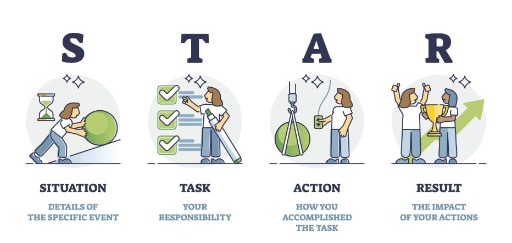Mastering the Interview: 12 Top Tips for Success
Interviews can be nerve-wracking. Whether you're a fresh graduate or a seasoned professional, each interview presents a new opportunity and its own set of challenges. But with the right preparation and mindset, you can confidently navigate through them. Here are some top tips to help you succeed in your next interview:
1.Research the Company
Look at the company website and social media accounts to really understand the company's mission, vision, products/services, and recent news. Being informed not only shows your genuine interest but also ensures you're making an informed decision about joining them, and you'll be in a much better position to ask thought-provoking questions at the end of your interview.
2. Understand the Job Role
Review the job description carefully. Know the key responsibilities of the role and think about how your experience / skillset aligns with them. The more examples you can give for the responsibilities the better.
3. Dress Appropriately
Your attire should match the company culture. If in doubt, it's usually better to be slightly overdressed than underdressed.
4. Prepare for Common Questions
While every interview is different, certain questions are almost universal: "Tell me about yourself," "Why do you want this job?" or "Describe a challenging situation and how you handled it." Prepare your answers in advance, but ensure they sound natural and not too scripted.
5. Ask Questions
Always ensure you ask at least two questions at the end of your interview, after all, an interview is a two-way street. This shows your enthusiasm and helps you assess if the company is the right fit for you. As you have already thoroughly researched the company, you will have a lot of material to help you prepare thoughtful questions. Here are four categories with specific examples to help you plan your questions:
The role itself: "One element of the role I am particularly interested in is the production of targeted sales material. Can you please tell me a bit more about this process and how much of an average day will be spent doing this?" or depending on the job function, "how closely does this role integrate with the sales department?"
Company goals: "I see you have recently opened a division in the Energy sector. Can you tell me more about the ambitions for this division and whether it will be linked to the governments Net-Zero targets?"
Company values: "Corporate Social Responsibility is one of your values. This is something I also value as an individual, so would love to know some examples of how you demonstrate this?"
The interviewer themselves: "I saw on your LinkedIn you have been with the company for 7 years. What is it that made you join and what would you say is the main reason you have stayed for this length of time?"
6. Practice Good Body Language
Maintain good posture, offer a firm handshake, make regular eye contact, and listen actively. Your body language can say as much about you as your verbal responses.
7. Clarify Doubts
If you don't understand a question, it's okay to ask for clarification rather than guessing what the interviewer might be looking for.
8. Use the STAR Method
When answering behavioural questions, use the STAR method: Situation, Task, Action, Result. It helps structure your answers and provides concrete examples of your experience. Download our STAR template in the resources section on the left of this page.

9. Stay Calm and Be Authentic
Remember, the interviewer is trying to get to know the real you. Stay calm, be genuine, and avoid giving answers you think they want to hear.
10. Follow Up
Send a thank-you note or email within 24 hours of the interview. Express your gratitude for the opportunity and reiterate your interest in the role.
11. Reflect and Learn
After the interview, take some time to reflect. What went well? What could you improve? Even if you don't land the job, each interview is a learning experience.
12. Stay Positive
Rejections can be disheartening, but remember, you're looking for a job that's a good fit for both you and the employer. Sometimes a "no" can be a blessing in disguise, leading you to a better opportunity elsewhere.
In conclusion, remember that the interview is not just about assessing your skills and qualifications, but also about seeing if you'd be a good cultural fit for the company. So, be yourself, and approach each interview as a chance to learn and grow.

